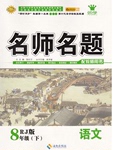题目内容
An old man once had an argument with his only son. He tried to __36__ many times, but the young man would not __37__. The father never__38__ because he loved his son with all his heart, but the son would not give in, __39__ he was too blinded by his pride.
Years passed and as the man lay in his deathbed, he made a __40__ attempt to reconcile (和解) with his son, but __41__ he would not listen and so the father died with a heart full of __42__.
During this time the son too had a child who had now __43__ into a young adult. To this child he never __44__ his father and when the young man asked about his grandfather he __45__ tell him never to mention him again.
One day, they two were involved in a hot __46__ and his son fled away as he did many years ago. This made the man extremely__47__ and this time he had no __48__, but felt completely isolated. (孤立的)
He was afraid that he would__49__ his son forever and for the first time after many years he realized how his father must have__50__ many years back.
He remembered how he had __51__ his old man and only at that point he realized the extent of the hurt he had caused. The __52__ he thought the more he understood how unjust he was with his old father, the man who gave him everything __53__ his life.
With these sad thoughts he felt __54__ on the couch. The next morning when he opened his eyes he found __55__ lying in his bed and in front of him stood his son. The man could not believe his eyes, and the two hugged each other while they cried together.
| 【小题1】 |
|
| 【小题2】 |
|
| 【小题3】 |
|
| 【小题4】 |
|
| 【小题5】 |
|
| 【小题6】 |
|
| 【小题7】 |
|
| 【小题8】 |
|
| 【小题9】 |
|
| 【小题10】 |
|
| 【小题11】 |
|
| 【小题12】 |
|
| 【小题13】 |
|
| 【小题14】 |
|
| 【小题15】 |
|
| 【小题16】 |
|
| 【小题17】 |
|
| 【小题18】 |
|
| 【小题19】 |
|
| 【小题20】 |
|
【小题1】C
【小题2】B
【小题3】B
【小题4】D
【小题5】A
【小题6】A
【小题7】C
【小题8】B
【小题9】A
【小题10】A
【小题11】C
【小题12】A
【小题13】B
【小题14】D
【小题15】A
【小题16】A
【小题17】C
【小题18】B
【小题19】D
【小题20】D
解析

 优学名师名题系列答案
优学名师名题系列答案An old man died and left his son a lot of money. But the son was a foolish young man, and he quickly spent all the money, so that soon he had nothing left. Of course, when that happened, all his friends left him. When he was quite poor and alone, he went to see Nasreddin, who was a kind, clever old man and often helped people when they had troubles.
My money has finished and my friends have gone, said the young man. What will happen to me now?
Don't worry , young man, answered Nasreddin. Everything will soon be all right again. Wait ,and you will soon feel much happier.
The young man was very glad .Am I going to get rich again then? he asked Nasreddin.
No, I didn't mean that, said the old man. I meant that you would soon get used to being poor and to having no friends.
【小题1】An old man died and left his son_______.
| A.nothing | B.some gold | C.much money | D.only a house |
| A.short of money | B.quite poor and sick |
| C.in trouble | D.quite poor and alone |
| A.he would become rich again |
| B.he would soon feel much happier |
| C.he would become clever |
| D.he would have more friends |
| A.would get rich again |
| B.would get used to having nothing |
| C.would get used to being in trouble |
| D.would get out of poorness |
| A.that money is everything |
| B.that money makes the mare go |
| C.to save each penny |
| D.that misfortune tests the sincerity of friends |
Many years ago in a small village, an old man was hired to clear the spring (泉水) up on the mountain. He patrolled (巡逻) the spring every day, and swept away all the leaves and other things that would dirty the fresh flow of water. Soon, beautiful swans (天鹅) came to the clear spring, and the village became a popular attraction for visitors.
Years passed. One evening the town leaders held a meeting. As they looked at the salary list, one of them said, “Why do we keep this old man on year after year? I don’t think we need him or his work.” Later, the old man was asked to leave.
For several weeks, nothing changed. By early autumn, the leaves began to fall off the trees, and the spring was covered with leaves. A few days later, the water was much darker. Only a few months after the old man left, all the swans left, as did the tourists. Disease reached deeply into the village.
Quickly, the leaders held a special meeting. Realizing their mistake, they rehired the old man. Then within a few weeks, the spring began to clear up. Soon new life returned to the village.
So, my friends, do you see? No matter how small your work or your life seems to be, never overlook it. Anything we can do will make a difference.
【小题1】The leaders decided to ask the old man to leave because they thought ______.
| A.his work was unnecessary | B.he did his work carelessly |
| C.he was too old to do the job | D.he could do other better jobs |
| A.Regretful. | B.Moved. | C.Excited. | D.Calm. |
| A.Believe. | B.Ignore(忽略). | C.Praise. | D.Punish. |
| A.even a small job can be important | B.work can bring old people happiness |
| C.everyone should always respect others | D.everyone can be his own master |